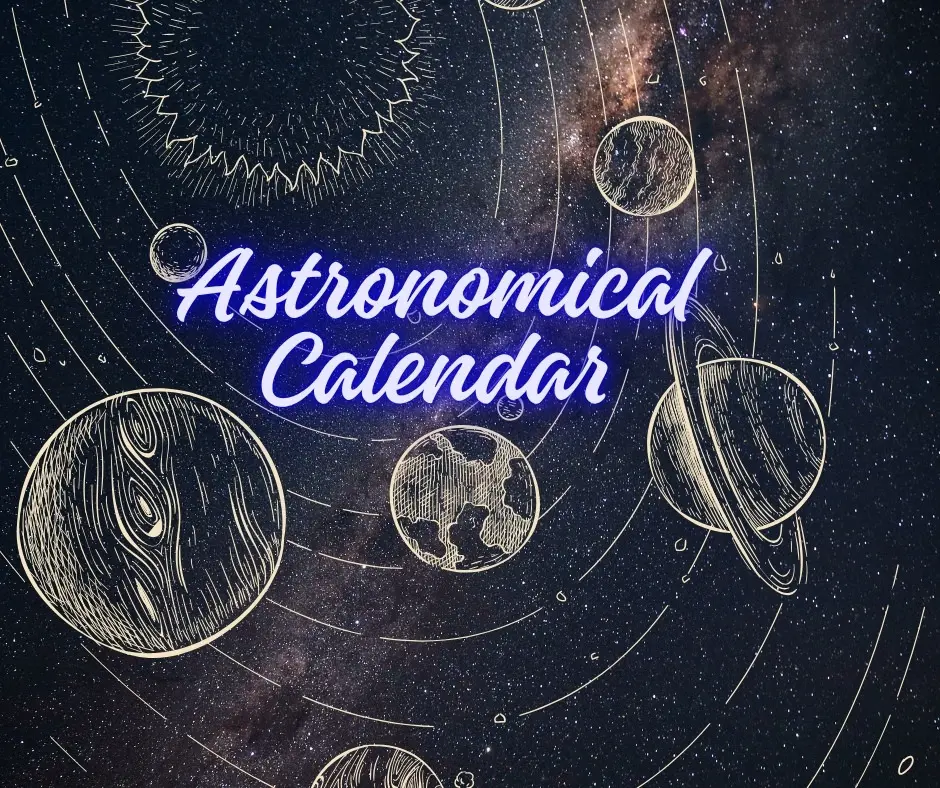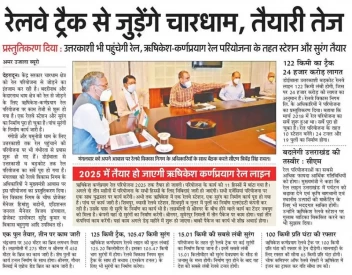Astronomical Calendar 2025 in India

Astronomical calendars may be used for a wide range of purposes, including tracking the movements and orbits of celestial objects, predicting astronomical events such as eclipses and meteor showers, and marking the dates of important scientific conferences and meetings.
The astronomy calendar of celestial events contains dates for notable celestial events including moon phases, meteor showers, eclipses, oppositions, conjunctions, and other interesting events in India.
Most of the astronomical events on this calendar can be seen with unaided eye, although some may require telescope as well.
Latest 2025 Astronomical Events in India
Celestial calendar is a type of calendar that is based on astronomical events or phenomena, such as the phases of the moon, the solstices and equinoxes, or the movement of celestial objects through the sky. Many cultures throughout history have used celestial calendars to track time and to mark important events and festivals.
Check out the dates for astronomical events like equinoxes, solstices, meteor showers, eclipses, supermoons, and more.
| January 2025 Astronomical Calendar | |
|---|---|
| Dates | Events |
| 1 Jan | Messier 41 is well-placed. |
| 2 Jan | Asteroid 14 Irene at opposition. |
| 3 Jan | Quadrantid meteor shower peak; Moon-Venus conjunction and close approach. |
| 4 Jan | Earth at perihelion; Moon-Saturn conjunction and close approach. |
| 6 Jan | Moon at First Quarter. |
| 7 Jan | The Moon at perigee. |
| 10 Jan | Venus at greatest elongation east. |
| 13 Jan | Full Moon; Comet C/2024 G3 (ATLAS) at perigee and perihelion; Lunar occultation of Mars. |
| 15 Jan | Mars at opposition. |
| 19 Jan | ?-Ursae Minorid meteor shower peak; Mercury at aphelion. |
| 20 Jan | The Moon at apogee; Lunar occultation of Spica. |
| 21 Jan | Moon at Last Quarter. |
| 29 Jan | New Moon. |
| 30 Jan | Uranus ends retrograde motion; Beehive Cluster is well-placed. |
| February 2025 Astronomical Calendar | |
|---|---|
| Dates | Events |
| 1 Feb | Conjunction of the Moon and Venus |
| 3 Feb | Conjunction of Venus and Neptune |
| 5 Feb | Moon at First Quarter |
| 9 Feb | Conjunction of the Moon and Mars |
| 12 Feb | Full Moon |
| 17 Feb | Lunar Occultation of Spica |
| 19 Feb | Venus at Perihelion |
| 21 Feb | Lunar Occultation of Antares |
| 25 Feb | Conjunction of Mercury and Saturn |
| 27 Feb | New Moon |
| March 2025 Astronomical Calendar | |
|---|---|
| Dates | Events |
| 1 Mar | Moon at Aphelion |
| 5 Mar | First Quarter Moon |
| 6 Mar | Lunar Occultation of Beta Tauri |
| 13 Mar | Full Moon |
| 20 Mar | March Equinox |
| 22 Mar | Moon at Last Quarter |
| 29 Mar | New Moon |
| April 2025 Astronomical Calendar | |
|---|---|
| Dates | Events |
| 1 Apr | Conjunction of the Moon and Venus |
| 5 Apr | Moon at First Quarter |
| 12 Apr | Full Moon |
| 20 Apr | Moon at Last Quarter |
| 25 Apr | New Moon |
| May 2025 Astronomical Calendar | |
|---|---|
| Dates | Events |
| 1 May | Conjunction of the Moon and Mars |
| 5 May | Full Moon |
| 12 May | Lunar Occultation of Spica |
| 20 May | Moon at Last Quarter |
| 25 May | New Moon |
| June 2025 Astronomical Calendar | |
|---|---|
| Dates | Events |
| 1 Jun | Conjunction of the Moon and Venus |
| 5 Jun | Full Moon |
| 12 Jun | Lunar Occultation of Antares |
| 20 Jun | June Solstice |
| 25 Jun | New Moon |
| July 2025 Astronomical Calendar | |
|---|---|
| Dates | Events |
| 1 Jul | Conjunction of the Moon and Mars |
| 5 Jul | Full Moon |
| 13 Jul | Lunar Occultation of Spica |
| 20 Jul | Moon at Last Quarter |
| 25 Jul | New Moon |
| August 2025 Astronomical Calendar | |
|---|---|
| Dates | Events |
| 1 Aug | Moon at First Quarter |
| 9 Aug | Full Moon |
| 15 Aug | Moon at Last Quarter |
| 22 Aug | New Moon |
| September 2025 Astronomical Calendar | |
|---|---|
| Dates | Events |
| 1 Sep | Full Moon |
| 7 Sep | New Moon |
| 21 Sep | September Equinox |
| October 2025 Astronomical Calendar | |
|---|---|
| Dates | Events |
| 1 Oct | Moon at First Quarter |
| 6 Oct | Full Moon |
| 21 Oct | New Moon |
| November 2025 Astronomical Calendar | |
|---|---|
| Dates | Events |
| 1 Nov | Moon at Last Quarter |
| 5 Nov | Full Moon |
| 11 Nov | New Moon |
| December 2025 Astronomical Calendar | |
|---|---|
| Dates | Events |
| 3 Dec | Moon at First Quarter |
| 9 Dec | Full Moon |
| 14 Dec | New Moon |
Types of Celestial Calendars
There are many different types of celestial calendars, and the specific events or phenomena that are used to mark the passage of time can vary widely depending on the culture and location. Some common types of celestial calendars include:
Lunar calendars: These calendars are based on the phases of the moon, and typically consist of 29 or 30 days. Lunar calendars are used in many cultures around the world, including the Islamic calendar, the Jewish calendar, and the Chinese calendar.
Solar calendars: These calendars are based on the movement of the sun through the sky, and typically consist of 365 or 366 days. Solar calendars are used in many cultures, including the Gregorian calendar (used in most Western countries) and the Hindu calendar.
Stellar calendars: These calendars are based on the movement of celestial objects through the sky, such as the stars or constellations. Stellar calendars may be used to mark important events or to track the seasons.


















